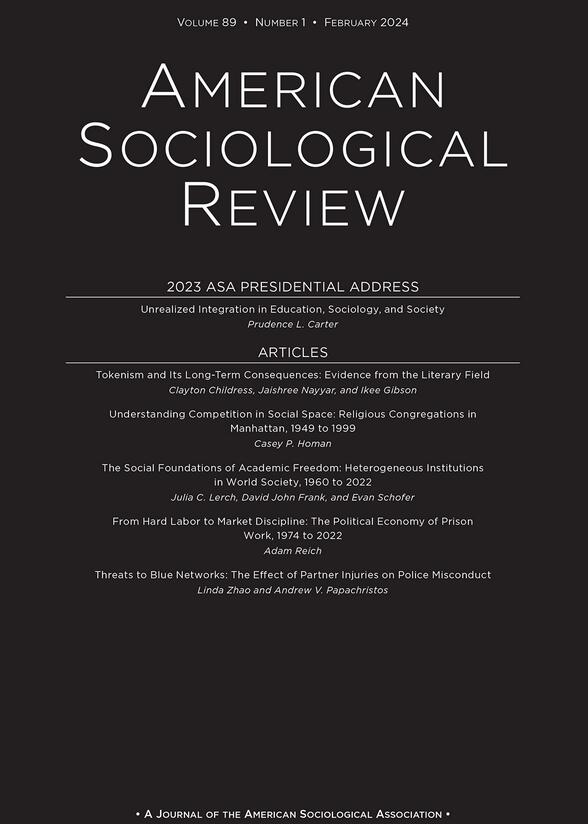The Wealth Inequality of Nations
IF 7.1
1区 社会学
Q1 SOCIOLOGY
引用次数: 80
Abstract
Comparative research on income inequality has produced several frameworks to study the institutional determinants of income stratification. In contrast, no such framework and much less empirical evidence exist to explain cross-national differences in wealth inequality. This situation is particularly lamentable as cross-national patterns of inequality in wealth diverge sharply from those in income. We seek to pave the way for new explanations of cross-national differences in wealth inequality by tracing them to the influence of different wealth components. Drawing on the literatures on financialization and housing, we argue that housing equity should be the central building block of the comparative analysis of wealth inequality. Using harmonized data on 15 countries included in the Luxembourg Wealth Study (LWS), we demonstrate a lack of association between national levels of income and wealth inequality and concentration. Using decomposition approaches, we then estimate the degree to which national levels of wealth inequality and concentration relate to cross-national differences in wealth portfolios and the distribution of specific asset components. Considering the role of housing equity, financial assets, non-housing real assets, and non-housing debt, we show that cross-national variation in wealth inequality and concentration is centrally determined by the distribution of housing equity.各国的财富不平等
对收入不平等的比较研究产生了几个框架来研究收入分层的制度决定因素。相比之下,没有这样的框架,更没有经验证据来解释财富不平等的跨国差异。这种情况尤其令人遗憾,因为跨国财富不平等的模式与收入不平等的模式大相径庭。我们试图通过追踪不同财富组成部分的影响,为财富不平等的跨国差异的新解释铺平道路。根据金融化和住房的文献,我们认为住房公平应该是财富不平等比较分析的核心组成部分。利用卢森堡财富研究(LWS)中包含的15个国家的统一数据,我们证明了国家收入水平与财富不平等和集中度之间缺乏关联。然后,使用分解方法,我们估计了国家财富不平等和集中程度与财富组合和特定资产成分分布的跨国差异的关系。考虑到住房权益、金融资产、非住房实物资产和非住房债务的作用,我们表明财富不平等和集中度的跨国变化主要取决于住房权益的分布。
本文章由计算机程序翻译,如有差异,请以英文原文为准。
求助全文
约1分钟内获得全文
求助全文
来源期刊

American Sociological Review
SOCIOLOGY-
CiteScore
13.30
自引率
3.30%
发文量
35
期刊介绍:
The American Sociological Association (ASA) is a non-profit membership association established in 1905. Its mission is to advance sociology as a scientific discipline and profession that serves the public good. ASA is comprised of approximately 12,000 members including faculty members, researchers, practitioners, and students in the field of sociology. Roughly 20% of the members work in government, business, or non-profit organizations.
One of ASA's primary endeavors is the publication and dissemination of important sociological research. To this end, they founded the American Sociological Review (ASR) in 1936. ASR is the flagship journal of the association and publishes original works that are of general interest and contribute to the advancement of sociology. The journal seeks to publish new theoretical developments, research results that enhance our understanding of fundamental social processes, and significant methodological innovations. ASR welcomes submissions from all areas of sociology, placing an emphasis on exceptional quality.
Aside from ASR, ASA also publishes 14 professional journals and magazines. Additionally, they organize an annual meeting that attracts over 6,000 participants. ASA's membership consists of scholars, professionals, and students dedicated to the study and application of sociology in various domains of society.
 求助内容:
求助内容: 应助结果提醒方式:
应助结果提醒方式:


